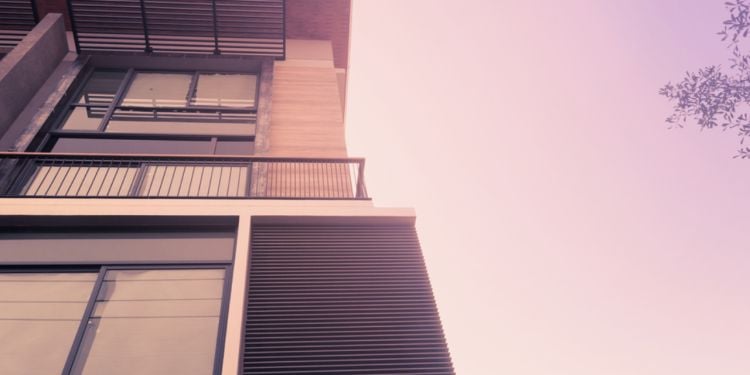
The astounding beaches, smiling people, and gourmet food will make you want to own a property in Thailand. Technically, by Thai law, foreigners or expatriates cannot and are not allowed to own land in Thailand, but there are some workarounds to this.
Real estate market in Thailand
There are lots of complicated restrictions that arise when you want to own a property in the Land of Smiles. However, you can see lots of foreigners owning properties on some of the popular beaches in Thailand, such as Phuket, Pattaya, Samui, Chiang Mai, and Bangkok, to name a few.
How to buy land in Thailand
To make it clear, non-Thai citizens can only own a condo in Thailand. If they want to buy a house or land, they have to do so through a 30-year lease, through a legally registered Thai company, by investing in the country, or through a Thai family member.
30-year lease
Thai law has changed the restrictions when it comes to the ownership of properties for expatriates over the years. There are lots of options for having property, but there are lots of drawbacks along with it. An expatriate can take out a 30-year renewable lease with a Thai local and have it registered in the Land Office, and it can be renewable in 30-year periods. However, once the process is done, the downside of this is that the lessee cannot sell or transfer the property unless the lessor gives his or her consent.
A registered Thai company
Another choice is to have a private limited company with Thai and foreign ownership. Fifty-one percent of the company must be owned by Thais, and you, as a Westerner, can only own 49%. Through this setup, you can then buy property in Thailand through the company.
Investing in BOI bonds and assets
If you invest a minimum of US$1.5 in BOI-approved bonds and assets, you'll be able to buy a maximum of one rai of land in Thailand, equivalent to 1,600 sqm. The land can only be used as your residence, not for work.
Through a Thai family member
If you're married to a Thai national or have Thai children, you can buy property under their name. Of course, your name won't be on the deed, but you can still live on the property and use it as you see fit for residential purposes. Just keep in mind that you will have no rights over the property should something happen in the future, such as a divorce, if you bought the property under your Thai spouse's name.
Procedures to buy a property in Thailand
Whatever the case is, here are some important details for you to know when buying property in Thailand:
1. Select a local agent
Since you are in a foreign country, you need expert assistance from the locals. They will help you in communicating and traveling as they are proficient in the area.
2. Seek for legal help
Things must be carefully prearranged when planning to buy a property in Thailand, so legal processes and advice should be sought. Legal assistance from lawyers and a local agent will help you read and verify the documents before signing and making the deposit, saving you from fraud and hassle.
3. Title investigation and verification
Before purchasing the said property, the title deed must be verified and examined. Both local agents and lawyers will advise you to go to the Land Department to have the title checked. The seller of the property must be cleared that he or she is handling the legal title before proceeding to the agreement.
4. Deposit of payment
Once you choose a property, the seller will ask you to pay a deposit to continue processing. To avoid the hassle and aggravation, make sure that the above-mentioned procedures are met before accessing the payment to the seller. Once the deposit is made, the seller will reserve the property for you and prepare all the documents, including the contracts, for you to sign.
5. Review of contracts
Once the seller hands you the contract, you may ask your lawyers for legal assistance to carefully review and check the terms and conditions to protect your interests and avoid delays in handing over the property. All should be fair according to the law.
Checklist to review when purchasing a property
1. Title Deed
a. The land title should be chanote as it is a full ownership deed. Chanote or a certificate land deed for private ownership of land issued by the Thai Land Department. It contains the name of the owner, the location of the land, the precise size of the area, and a map that shows the boundaries of the said land.
b. Verify the front and back of the land title.
c. Verify the government's assessment of the property value.
d. Verify the restrictions of previous transfers.
2. Land and House
a. Review the tabien baan, or house book, the building permit, and the land office sale agreement of the property. Make sure that all these are available, as the property could be built illegally or owned by others.
3. Condominium
a. The original registered and licenses of the condominium as leasehold.
b. Management charges of the condominium.
c. Rules and regulations of the said condominium.
d. Sales and purchase agreement of the condominium.
Property prices in Thailand
Every year, thousands of Western expatriates move to Thailand, and some of them buy property.
Inside of Bangkok
In Bangkok, the starting price for vacant land is US$40,000 on the outskirts of the city. However, the costs can far exceed US$3 million in the city center. For land with houses already built on it, the price per square meter starts at US$1,700. On average, houses go for around THB 15 million in Bangkok.
Outside of Bangkok
If you're looking for a reasonable place in rural Thailand, expats will pay anywhere from US$500 to US$100,000 per acre, depending on where the land is situated. Of course, better views and access to utilities will increase the price. As for houses in rural Thailand, houses go for around US$20,000 for older homes and around US$60,000 to US$80,000 for newly built houses with nicer facilities.
We do our best to provide accurate and up to date information. However, if you have noticed any inaccuracies in this article, please let us know in the comments section below.








